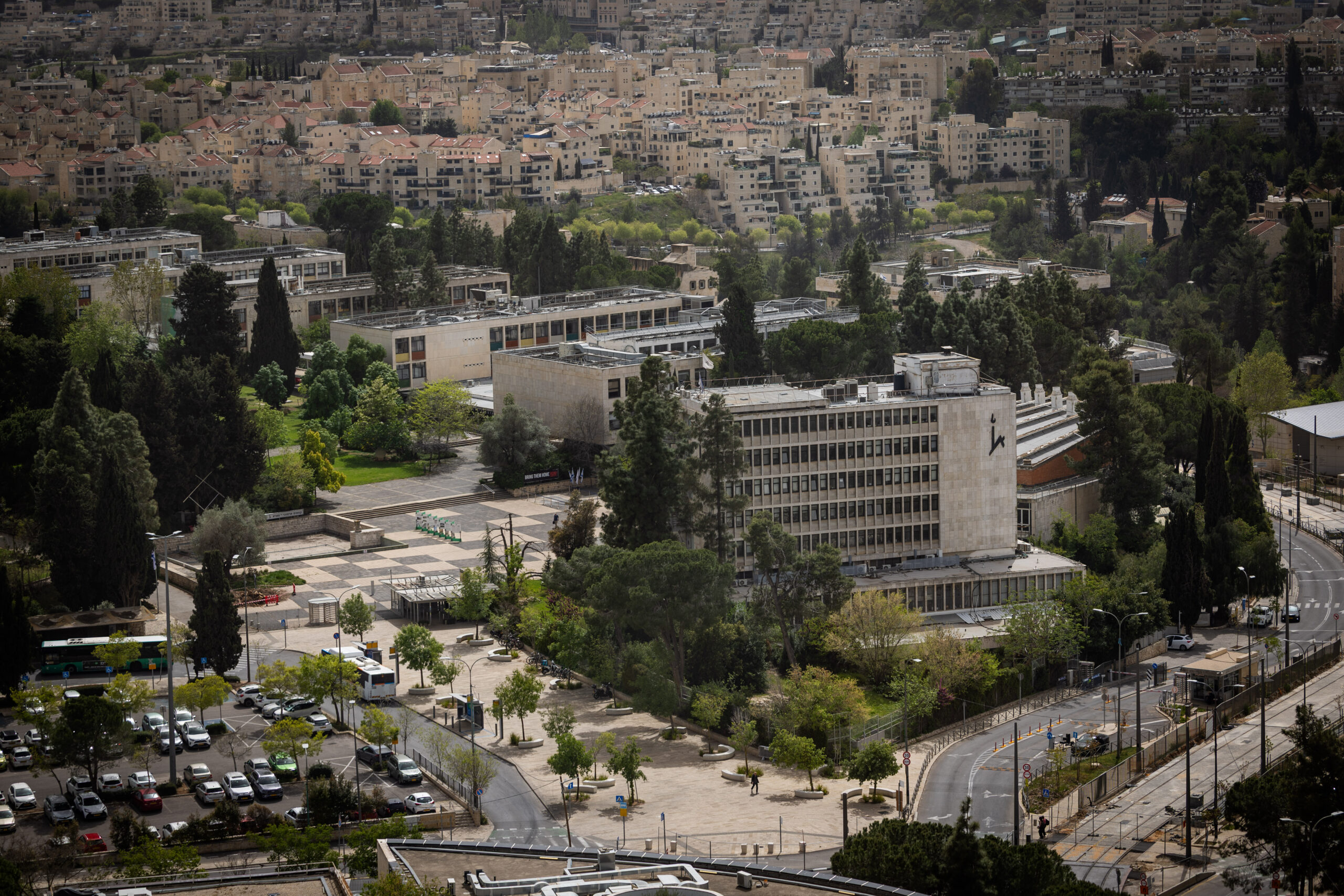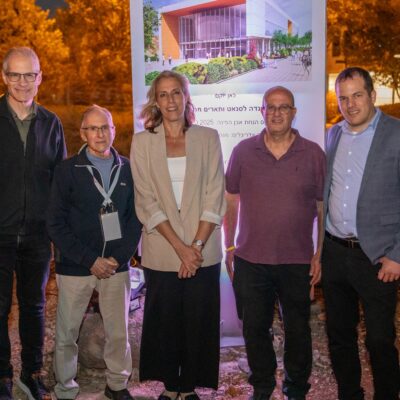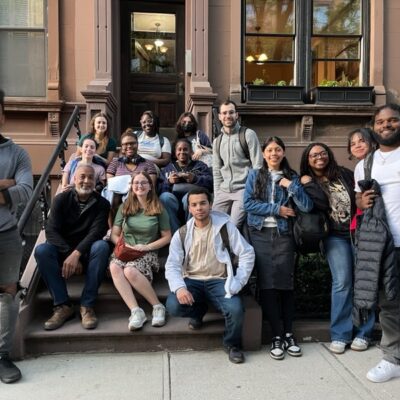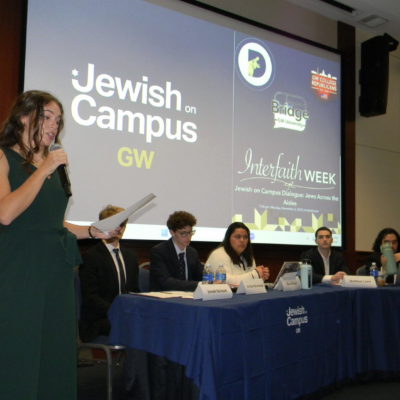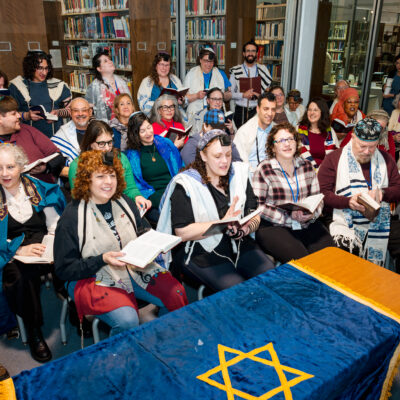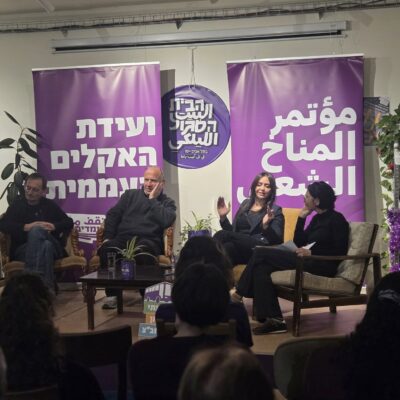TRIP TRAVAILS
Over 140 Israel travel professionals gather in Jerusalem to chart a course for the field post-Oct. 7
With participant numbers down and need for high-quality trips growing, Israel Educational Travel Alliance organizes first-ever Leaders Summit

Yinon Fuchs/IETA
Representatives of Israel travel organizations attend the Israel Educational Travel Alliance's Leaders Summit in Jerusalem on Jan. 20, 2025.
Just as the Israel travel field was getting back on its feet following the COVID-19 pandemic, the Oct. 7 terror attacks and resulting 15 months of war ground the industry to a halt. In light of growing security concerns by would-be participants and their parents, as well as a substantial increase in ticket prices as most international airlines suspended their flights to Ben Gurion International Airport, some programs reported a 90% reduction in the number of participants.
But in addition to the new logistical and security challenges, the past 15 months of war — and the year of political turmoil that proceeded it — have raised fundamental questions about the nature of Israel education, which trip organizers will now have to grapple with.
To help the sector recover and chart a parth forward, this week the Israel Educational Travel Alliance organized its first-ever Leaders Summit, bringing some 140 representatives from more than 100 member organizations to Israel for a week to discuss the future of educational Israel travel programs in the aftermath of Oct. 7 and how the field can assist in Israel’s economic recovery. The IETA also pledged to increase the number of participants in education Israel travel this year to 53,700 participants, up from 35,500 in 2024.
“We’re here to figure out the next chapter together,” Anna Langer, IETA acting executive director and vice president for North America-Israel strategies, told eJewishPhilanthropy at a dinner hosted by the group in Jerusalem on Monday night. “The purpose of our summit is to help us open up our eyes to the potential… We are here to outline together the direction and the content of Israel educational travel opportunities in 2025 by doing what we ask [travel program] participants to do: We are going out and having experiential Israel education opportunities.”
IETA, which was formed in response to the COVID-19 pandemic, is a consortium of over 100 Israel educational travel organizations, programs and philanthropies housed at Jewish Federations of North America, and includes groups such as Birthright Israel, RootOne, Masa and the Christian Israel travel group Passages. In addition to JFNA, the summit’s sponsors include the Jewish Agency and the Israeli Ministry of Diaspora Affairs and Combating Antisemitism.
According to IETA, the educational travel sector played a pivotal role in Israel’s economy throughout the war, growing from a 5% share of tourism before Oct. 7 to a 15% share during the war.
Studies show that participating in education trips to Israel significantly shapes the Jewish identity of young North American Jews, boosting their involvement in Jewish communal life and bolstering their commitment to the State of Israel, Langer said.
Over the next five days, conference participants will travel to Israel’s south and north to see for themselves the changes which have taken place since the war and strategize about how they can more intentionally and respectfully engage their travel participants in the rehabilitation of the areas and the people, Langer said. They will go on a “food tour” of Sderot — a place rarely visited by North American Israel travel experience programs — to find new places for meals for participants when they travel south, hear the business owners’ stories and what services they can offer. They will also meet with a Nova music festival survivor to hear directly from him what would be the best way to “build meaningful experiences” for travel participants to engage with the Nova community and their story, she said.
“He’s helping us think at the level of design and strategy and intention,” Langer said. “We’re really trying to ask the people who we would engage with directly most of the time on the trip how we can respectfully, thoughtfully engage with them.”
She said as young North American Jews begin asking for a more nuanced view into Israeli society her group aims to match this with a commitment to creating more nuanced and engaged educational experiences that address contemporary issues and foster deeper connections between participants and the diverse constituencies of Israeli society. Reflecting this goal, the IETA will now offer more opportunities to discuss subjects such as Zionism, military service, Israel’s economic recovery, shared society between Jewish and non-Jewish Israelis, pluralism and diversity.
“Crises create opportunities for new learning and new perspectives, and we have done our best to lean into our approach of building trusted partnerships so that we create opportunities for different groups to hear and connect with each other,” Liron Shoham, executive director of the U.S.-based Inter-Agency Task Force on Israeli Arab Issues, which facilitates diversity encounters with Israeli Arabs through partner organizations, told eJP.
Gidi Mark, international CEO of Taglit-Birthright Israel, noted that issues of security have become an even bigger consideration for travel to Israel. Still, he said, Birthright has felt a need from young Jewish people to come to Israel specifically at this time and brought some 20,000 young people to Israel last year compared to their normal 40,000-50,000 participants. It has also permanently added a volunteer component to its programming to meet the need of the young people to contribute to Israel and help in the rebuilding in a meaningful way, he said.
“The antisemitism young Jews have felt over the past 15 months [has] had a negative impact, but have also pushed people to become players on the Jewish playground, and they have realized that hiding away doesn’t help” he said, though admitting that it is nevertheless still harder to bring people to Israel on experience trips, attributing it largely to the scarcity of flights to Israel.
As the security situation in Israel has improved, there is an increased interest in educational group travel to Israel, noted Josiah McGee of Passages Israel, which normally brings some 11,000 Christian high school and college student supporters to Israel a year. Now the group has been bringing about 100 students per trip which take place three times a year, he said.
“We recognized very early on that Oct. 7 was going to change not just Israel but also the industry, that we weren’t the only ones who were going to be struggling with some questions about what is the most respectful way to do Israel education post-Oct 7, particularly because we’ve been visiting communities in the envelope since 2016,” said McGee. “You can’t forget about them post Oct. 7. But also we wanted to be very intentional and responsible about how the program had to adapt. We also knew that there were other organizations that were thinking about the same thing.”
As members of IETA since before Oct. 7, Passages has benefited greatly since then from collaborating with other organizations to address challenges and find partners for service learning and volunteer opportunities for their participants, he said. This helps their students learn about communities in Israel while contributing to recovery efforts from the war, he added.
Meeting with other leaders of organizations bringing groups to Israel also helps people learn from one another and think about issues they may not have considered before such as how to re-train travel staff and how they want to present Israel’s narrative following Oct. 7, Robyn Judelsohn, chief movement experience officer for BBYO, told eJP. Normally BBYO brings about 1,000 high school students to Israel per year, she said. Last year that number dropped to 100 but has risen for 2025 to 150, she said since the implementation of the Route One grant which offers U.S. and Canadian teens a $3,000 voucher to help make their trips more affordable.
Moreover, she said, last year’s group was very much teen-driven with many of the teens traveling to Israel for the first this past summer were motivated to go, with some expressing a strong desire to experience Israel for the first time, indicating a shift in interest and engagement among the youth. The trips also included a newly emphasized meaningful volunteerism component fostering a sense of contribution and connection with the teens gaining a different understanding of the political landscape in Israel and world events than did previous participants.
“It’s nice to sit around the table with people and say, you know what, I’m not sending as many people as I went last year… you’re not going to see that [each other’s] Facebook or Instagram, but you’re going to hear from real people here that this is something we had to manage that we never had to manage before and that that’s been really helping,” said Judelsohn. “I think people here [at the summit] in a beautiful way take off their professional hat of ‘we’re the greatest’…a nd really want to help each other. We all see that more people going to Israel is success for everyone at the table.”
Shelley Kedar, director of the Connecting the Jewish People Unit of the Jewish Agency, told the summit at its opening dinner that bringing groups to Israel was not only crucial for Israel’s economy and small businesses, but also for the morale of Israelis in general.
“When Israelis see groups walking around we don’t feel so isolated and alone,” she said. “We feel that there is Jewish peoplehood.”

 Add EJP on Google
Add EJP on Google







